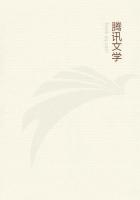The System of those Laws Which Require No External Promulgation.
CHAPTER I.Of the Mode of Having Anything External as One's Own.
1.The Meaning of "Mine" in Right (Meum Juris).
Anything is "Mine" by right, or is rightfully mine, when I am so connected with it, that if any other person should make use of it without my consent, he would do me a lesion or injury.The subjective condition of the use of anything is possession of it.
An external thing, however as such could only be mine, if I may assume it to be possible that I can be wronged by the use which another might make of it when it is not actually in my possession.
Hence it would be a contradiction to have anything external as one's own, were not the conception of possession capable of two different meanings, as sensible possession that is perceivable by the senses, and rational possession that is perceivable only by the intellect.
By the former is to be understood a physical possession, and by the latter, a purely juridical possession of the same object.
The description of an object as "external to me" may signify either that it is merely "different and distinct from me as a subject," or that it is also "a thing placed outside of me, and to be found elsewhere in space or time." Taken in the first sense, the term possession signifies rational possession; and, in the second sense, it must mean empirical possession.A rational or intelligible possession, if such be possible, is possession viewed apart from physical holding or detention (detentio).
2.Juridical Postulate of the Practical Reason.
It is possible to have any external object of my will as mine.In other words, a maxim to this effect- were it to become law- that any object on which the will can be exerted must remain objectively in itself without an owner, as res nullius, is contrary to the principle of right.
For an object of any act of my will, is something that it would be physically within my power to use.Now, suppose there were things that by right should absolutely not be in our power, or, in other words, that it would be wrong or inconsistent with the ******* of all, according to universal law, to make use of them.On this supposition, ******* would so far be depriving itself of the use of its voluntary activity, in thus putting useable objects out of all possibility of use.In practical relations, this would be to annihilate them, by ****** them res nullius, notwithstanding the fact act acts of will in relation to such things would formally harmonize, in the actual use of them, with the external ******* of all according to universal laws.Now the pure practical reason lays down only formal laws as principles to regulate the exercise of the will;and therefore abstracts from the matter of the act of will, as regards the other qualities of the object, which is considered only in so far as it is an object of the activity of the will.Hence the practical reason cannot contain, in reference to such an object, an absolute prohibition of its use, because this would involve a contradiction of external ******* with itself.An object of my free will, however, is one which I have the physical capability of ****** some use of at will, since its use stands in my power (in potentia).
This is to be distinguished from having the object brought under my disposal (in postestatem meam reductum), which supposes not a capability merely, but also a particular act of the free-will.But in order to consider something merely as an object of my will as such, it is sufficient to be conscious that I have it in my power.It is therefore an assumption a priori of the practical reason to regard and treat every object within the range of my free exercise of will as objectively a possible mine or thine.
This postulate may be called "a permissive law" of the practical reason, as giving us a special title which we could not evolve out of the mere conceptions of right generally.And this title constitutes the right to impose upon all others an obligation, not otherwise laid upon them, to abstain from the use of certain objects of our free choice, because we have already taken them into our possession.Reason wills that this shall be recognised as a valid principle, and it does so as practical reason; and it is enabled by means of this postulate a priori to enlarge its range of activity in practice.
3.Possession and Ownership.
Any one who would assert the right to a thing as his must be in possession of it as an object.Were he not its actual possessor or owner, he could not be wronged or injured by the use which another might make of it without his consent.For, should anything external to him, and in no way connected with him by right, affect this object, it could not affect himself as a subject, nor do him any wrong, unless he stood in a relation of ownership to it.
4.Exposition of the Conception of the.
External Mine and Thine.
There can only be three external objects of my will in the activity of choice:
(1) A corporeal thing external to me;
(2) The free-will of another in the performance of a particular act (praestatio);(3) The state of another in relation to myself.
These correspond to the categories of substance, causality, and reciprocity; and they form the practical relations between me and external objects, according to the laws of *******.














